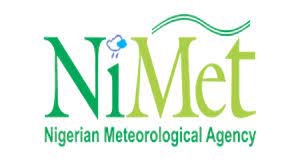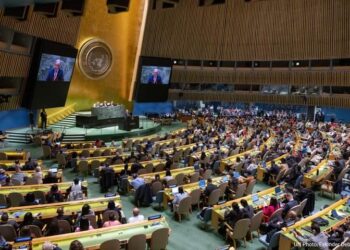Director-General of Nigerian Meteorological Agency (NIMET), Professor Mansur Matazu, in this interview speaks on a wide range of issues to journalists at a forum recently. SULEIMAN IDRIS was at the session.
Does Nimet receive payment for services it renders to countries?
We do provide technical services. There is what we call WMO VCP (Voluntary Country Partnership), which is called in ICAO as “No Country Left Behind.” So the weather is dynamic and it moves from one area to the other. Even if you have the capability and you don’t share that expertise with your neighbours, I don’t think you are helping.
Like for Nigeria, if there is a problem in Niger for drought and flood, we have over a thousand kilometers of borders, all of them would move, that is number one. The reason America and other countries are called Superpowers is by providing some of these support.
So for you to get relevance, credibility and become big brother, you have to provide some support to the weaker community and with that we have achieved a lot as a country, we have been categorized as the best Met Service and they always refer to us if there is anything.
Let’s talk about the institutions you have around the country?
We have two schools – the WMO Regional Training Centre in Lagos and the Muhammadu Buhari Meteorological Institute of Science and Technology in Katsina. The one in Lagos is offering WMO classes certificates of class one, class two and class three equivalent of Diploma, HND and Postgraduate Diploma and the one in Katsina is accredited by the NBTE, offering Diploma in Meteorology and Diploma in Climate Change and we are working with NBTE to get accreditation for HND since we have graduated the first set. So all the English speaking West African countries and all NiMet staff that you have seen across the country are products of the Regional Training Centre in Lagos, all the Directors of Met Services in English Speaking West African countries are our students and they are performing wonderfully well and that is why every year, WMO sponsors people. Even these Gambians, Cameroonians and the ones from Niger that would come to the centre in the next few days, they would come under WMO fellowship and we are getting revenue in dollars from that participation.
What are the major challenges confronting Nimet?
Challenges are natural, that is why human beings have a brain and that brain is being housed inside a skull that is 60 times harder than all the bones in our body for you to see how you overcome these challenges. So, mostly in governance because of budget issues, there is the challenge of funding and also how acceptable is your service? So, you are helping us get this acceptability and with the visibility we have, we are getting a lot of demands now, which is creating a lot of positive challenges for us. There is a lot of interest now in what we do and that is good for us. So, it sharpens our work and then lets us do more on this and with that revenue will come, client satisfaction would be achieved and then sustainable development will also be achieved.
How are you dealing with issues of funding of projects?
Even when I close my eyes and look at how we do it, I can tell you we don’t owe any contractor. The moment your job is finished, we run a financial transparent system, we make a cash plan, we capture you and we implement that cash plan, two times in a month and we get you paid. You are also helping the economy by doing that. Any contractor must have hired labour, skilled and unskilled and if you pay him, the money and the resources will go down and part of the money would revolve round the government to come under Federal Inland Revenue Service (FIRS).
I think one thing that has helped us is just sincerity of purpose. If you just have a clear-cut purpose of getting results and you have the right team, I am sure we can achieve a lot. In aviation, we have almost the least in terms of revenue, but I tell myself and my team, they all know, we are also the happiest. Despite the small salaries and allowances that we get, we are happy. One thing that adds to our happiness is some of our services are being received and utilised by common man and you see that simple information is changing someone’s life. So naturally we would be happy doing that. But we would do more with the help of the management.
How are airlines complying with your advisory?
When they say pilot, Pilot-in-Command (PIC), even control tower, Air Traffic Controller (ATC) can’t dictate to them. They give them information and they say at your discretion. So part of that information is our Met information. Every 30 minutes and real time, there is a screen at the control tower where they give them update if there is any sudden change in weather and I am sure ATC must have warned that pilot about mild wet runway because the moment you take off, even before take-off, we have pilot briefing room where you get our fodder and that is why we are beginning to publish those airlines that collect our fodders and we have email platform. So the issue is compliance and you pilots, they have the final say and NSIB has already written to us to give them the weather situation in Lagos.
Let’s talk about the Low Level Wind shear (LLW)
Actually the LLWAS (Low Level Wind Shear Alert System) project started after the Sosoliso crash and it is a phenomenon that is very dicey and dynamic, something that happens within seconds and then it goes. Abi nitio, we were not an agency of government and also within the industry, able to track this, but after that incident, it became open to us; we came up with a proposal for this LLWAS and today we have done it in 18 airports.
Do you have challenges with vandalism?
Here comes the challenge, at times before you finish a project, you are already experiencing vandalisation.
In Port Harcourt, they cut the whole mast from the base. In Lagos, even within the airport perimeter, we recorded vandalisation, but we were able to weather through the storm. One, we are working on alternative technology even though it is very expensive that we call Terminal Doppler Radar. We are also devising what we call a north-central approach which helps us to study cloud physics over any area in the country. With cloud physics knowledge, you would know whether clouds could result in microburst and it is from microburst from an entire set of clouds that we could have wind shear. So we are using multiple approaches to the wind shear just as they are doing in the US.
They still have LLWAS even though they don’t experience vandalisation, but they combine it with ladder and then terminal Doppler radar and also the North-Central Approach. So, we engaged a UK partner from the University of Leeds to acquire the knowledge and skill and we have the platform now. So we have done the initial test-running of the process and we want to go into large scale to complement the LLWAS. So it is one of our critical projects and every time, every period you see us running around, trying to get it.
On the issue of vandalism, we engage in community policing and we have seen significant improvement with regards to security and also FAAN and other paramilitary authorities have been involved and they are helping us a lot.




